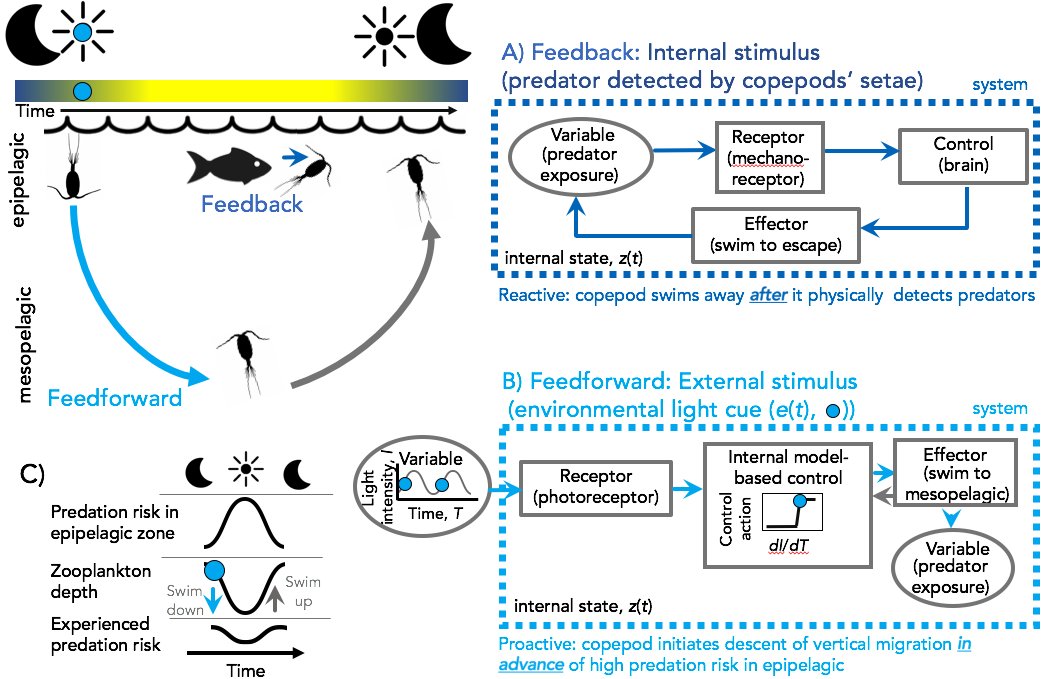
Excited to share our new paper with a dream team of co-authors @mioconnor @jennsunday @bio_diverse 🎉🎉🎉
We introduce a new framework, based on feedback and feedforward mechanisms, for understanding how living systems persist in fluctuating environments dx.doi.org/10.1098/rstb.2…
We introduce a new framework, based on feedback and feedforward mechanisms, for understanding how living systems persist in fluctuating environments dx.doi.org/10.1098/rstb.2…

What motivated this paper? Almost every environment on Earth fluctuates over time & space. All living systems, from cells to communities, must deal with these fluctuations to persist, yet we lack a coherent framework to understand these mechanisms at multiple biological scales.
We integrate concepts from systems biology, physiology, population ecology and evolutionary biology to demonstrate that a common set of mechanisms -- *feedbacks* & *feedforwards* -- operate across scales and allow living systems to persist in changing environments. 

What’s the difference between a feedback and a feedforward? One key distinction is that feedback mechanisms are *reactive* while feedforward mechanisms are *proactive*. 

Feedbacks are reactive. They rely on deviations from some internal set-point, and react to the deviation to return the system to the set-point, after the deviation has occurred. Thermoregulation is a classic example of feedback. 

Feedforwards are anticipatory. They allow systems to adjust and prepare in advance of an expected future state of the environment. They rely on external environmental cues, like changes in photoperiod or light regimes, which are correlated with a future selective environment. 

Trees dropping their leaves in the autumn, as cued by photoperiod, in advance of impending winter cold, is an example of a feedforward.
📷: @longphoto
📷: @longphoto

How do feedforwards arise? They can arise as organisms exploit repeated associations between correlated environmental variables, with a time lag, to anticipate change. 

Feedforwards are everywhere! Circadian rhythms, phenology, immune priming, migrations are all feedforward mechanisms, allowing organisms to prepare for future conditions. 

Why is understanding feedforwards important? Because different species may rely on different cues, and these cues may change at different rates as the environment changes. Variation in shifts in cues can alter entire communities. 

Humans impacts are changing correlations between environmental variables, altering the reliability and availability of cues, changing the informational milieu, with big consequences. 



Most processes combine feedback AND feedforward components -- here predator avoidance by zooplankton combines diel vertical migrations (feedforward) with escape reactions to predators when they get close (feedback). 

Most processes combine feedback AND feedforward components -- here predator avoidance by zooplankton combines diel vertical migrations (feedforward) with escape reactions to predators when they get close (feedback). 

Many more ideas to dig into! Can't wait to explore these further. Many thanks to @bio_diverse @JennSunday and @mioconnor for making this paper so fun to write, and @nereusprogram and @CIEEICEE for supporting this work!
• • •
Missing some Tweet in this thread? You can try to
force a refresh



